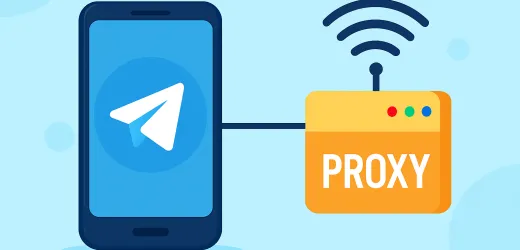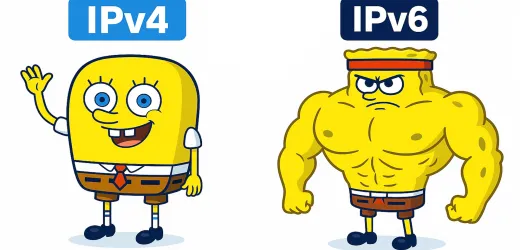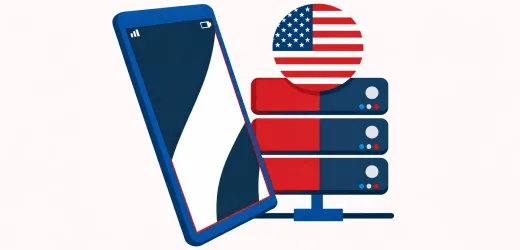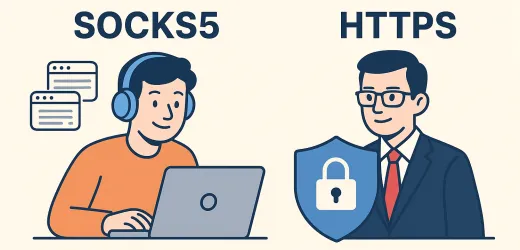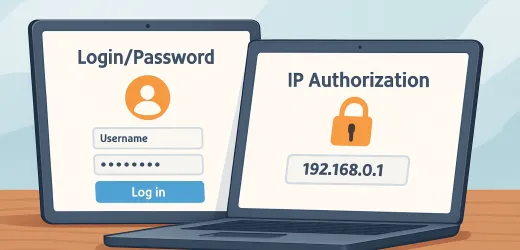If you’ve searched for proxies, you’ve probably seen many proxy providers claiming to have ethical proxies or proxies collected ethically.
What does this mean?
Ethical proxies are proxies obtained with the user’s consent. In simple terms, when a person installs an app on their phone or computer, they accept the terms of use that clearly state their IP address and part of their internet traffic may be used.
It’s important to understand that ethical proxies are not a type of proxy but rather a method of collecting them. Ethical proxies include residential proxies and, in some cases, mobile proxies, as these are proxies of real people. Server proxies or ISP proxies are ethical by default since they are not collected from individuals but are provided by data centers or home providers. Therefore, the term ethical proxies specifically refers to residential or mobile proxies.
Is this legal?
Yes, it’s completely legal because the user voluntarily agrees to the terms of service or app use, which include a clause regarding the use of IP addresses and internet traffic. Therefore, it’s important to always read the user agreement if you don’t want your IP address to be used as a proxy.
Why do proxy providers advertise their proxies as ethical?
This helps increase customer trust. In contrast to ethical proxies, some proxies are created without user consent — meaning the terms of use do not mention it, but the app still allows proxy providers to use part of the user’s internet traffic. Moreover, companies that operate legally are usually interested in cooperating only with ethical proxy suppliers to avoid any future problems.
Where to get ethical proxies?
If you’re looking for a proxy provider that offers ethical proxies, you should pay attention to the following:
-
Does the proxy provider state on their website that their proxies are ethically sourced?
-
Is the legal address listed on the website, and under which jurisdiction does the proxy provider operate? The more information a company provides about itself, the more likely it is that its proxies are truly ethical.
-
Does the proxy provider have certifications? The more certifications and regulatory compliance a company holds, the more trustworthy its ethical proxies are. For example, OxyLabs, Evomi, and Decodo are certified by EWDCI (an international initiative setting ethical standards and shaping the future of responsible data aggregation).
-
Does the proxy provider follow a KYC policy? When proxy providers collect proxies ethically, they also want them to be used ethically. Therefore, providers often require KYC verification when purchasing proxies. This may happen during payment or if the company has concerns about user activity. However, the requirement to complete KYC is also a clear indicator that the proxies are sourced ethically.
Here are some proxy providers that offer 100% ethically sourced proxies: Decodo, Infatica, NetNut, Evomi, Soax, OxyLabs, IPRoyal.
Let’s summarize:
-
Ethical proxies are proxies obtained with the explicit consent of users who allow their IP addresses and internet traffic to be used by proxy providers.
-
In most cases, consent is provided through a user agreement when the person installs an app on their phone or laptop.
-
Ethical proxies are not a proxy type but a collection method and refer to residential or mobile proxies.
-
When looking for a proxy provider offering ethical proxies, pay attention not only to the provider’s claims but also to other clear indicators that indicate the proxies’ ethical nature.
For a complete list of proxy providers, please see our proxy provider rankings.




